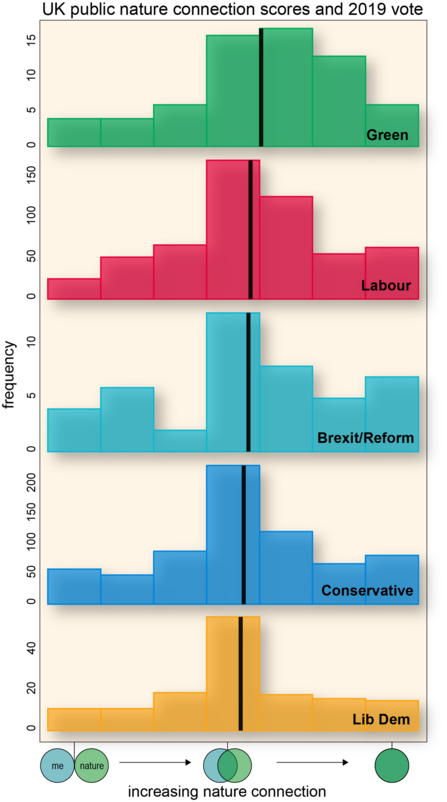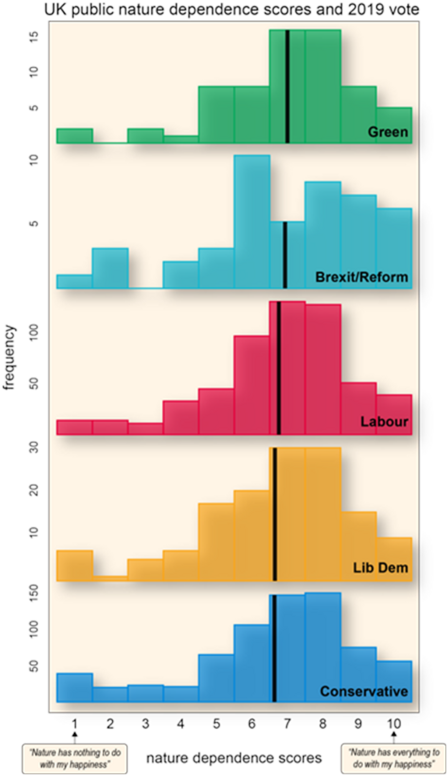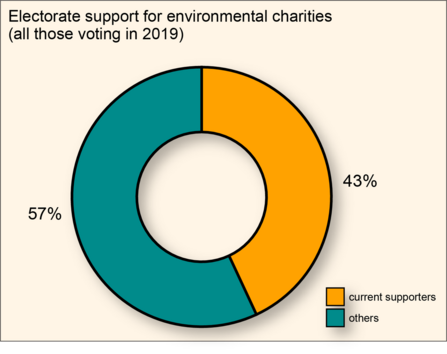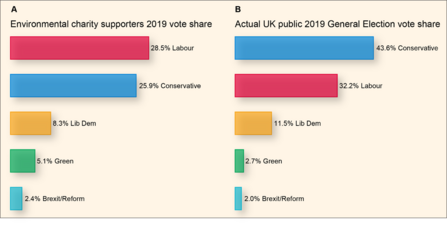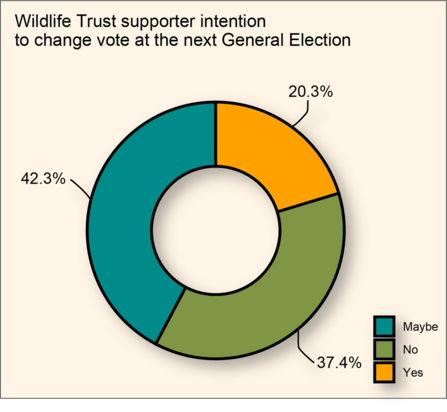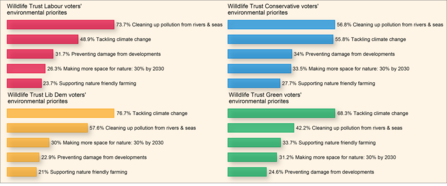Over the last six months, The Wildlife Trusts have conducted two nationwide surveys of their members and the wider public1, 2. While it was already known that there are nearly a million members of The Wildlife Trusts and, collectively, membership of the largest nature charities numbers around eight million, it was not known until now that environmental charities are supported by a large and politically diverse constituency of voters in the UK.
Results published today demonstrate that, irrespective of voting choice, nature matters to voters across the electorate. Voters on the left and right feel similarly connected to nature, and depend to a similar degree on nature for wellbeing. The polls reveal:
-
Average sense of nature connection and nature dependence among Labour, Conservative, and other voters, is remarkably similar1(Figures 1 & 2)
-
43% of those polled who voted in the 2019 General Election currently support environmental charities in some way1 (Figure 3)
-
29% of environmental charity supporters voted Labour in 2019 and 26% voted Conservative1 (Figure 4A)
The surveys also reveal that many Wildlife Trust supporters are considering voting differently at the upcoming election – potentially having a major impact on the result – and may be swayed by parties’ environmental policies:
-
The majority of Wildlife Trust supporters either will or might vote differently in the next election. 20% of Wildlife Trust supporters said they would change their vote and 42% said they might change their vote at the next general election2 (Figure 5)
-
61% of The Wildlife Trusts’ supporters will vote based on environmental policies offered by candidates, and a further 32% are considering doing the same2
The polls show that if a party was to make a strong pitch on the environment, this could sway wavering voters:
-
84% of our Conservative-voting supporters are dissatisfied with the current Government’s track record on nature and climate2
-
84% of the public are taking at least one action for nature and climate1
-
Just 7% of the public think that the loss of nature and climate change are not serious threats to humanity1
The Wildlife Trusts asked their supporters what they believe the environmental priorities of the next government should be2, and three main issues emerged:
-
Tackling climate change – 66%
-
Cleaning up pollution from our rivers and seas – 51.4%
-
Making more space for nature – 31.5%
This consensus is consistent across voting blocs, with Labour, Liberal Democrats, Conservative, and Green voting supporters all largely agreeing (Figure 6).
Elliot Chapman-Jones, head of public affairs at The Wildlife Trusts, says:
“Our data clearly shows Britain’s love for nature spans across the political divide and Wildlife Trust supporters are split evenly between Conservatives and Labour voters. But almost two thirds of our supporters are considering voting differently at the upcoming election – which means that those who are concerned about devastating nature loss could swing the result decisively.
“Millions of Britons belong to nature organisations such as The Wildlife Trusts, dwarfing the membership of the country’s political parties. Our research shows they are calling out for political parties to offer bold plans ahead of the next election to restore nature, tackle water pollution, and halt climate change.
“The upcoming election will be crucial for the future viability of life on our planet, yet some politicians have failed to grasp the depth of concern over disappearing wildlife and the impacts of climate change. Politicians and political parties will be judged by the electorate, and by history, on whether their plans can meet the scale of the challenge to halt the decline of nature and halve emissions by the end of the decade.”

